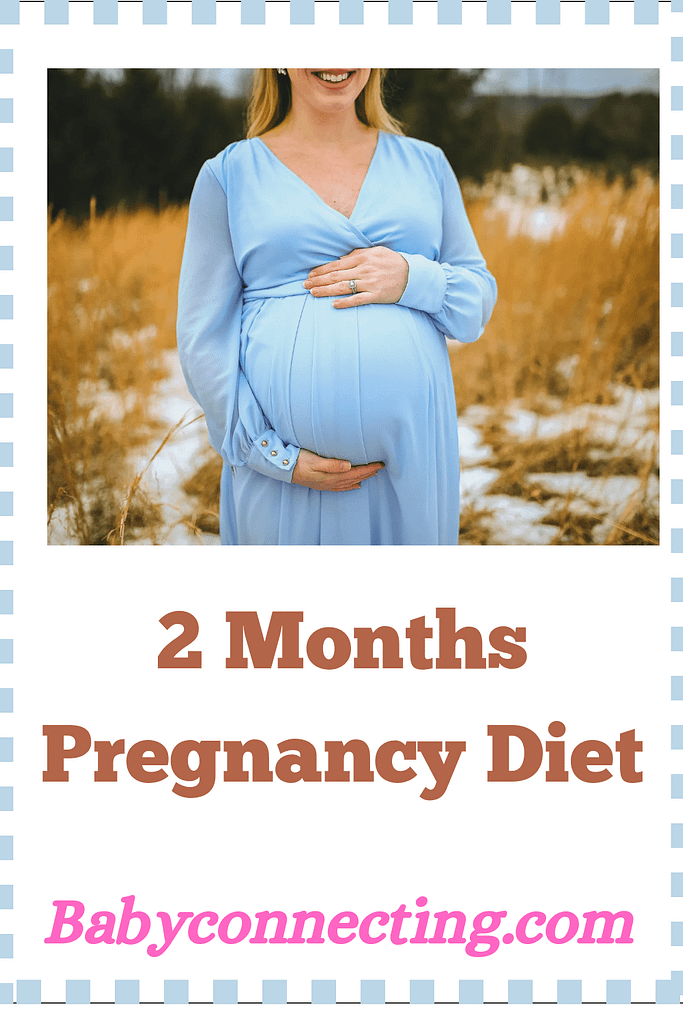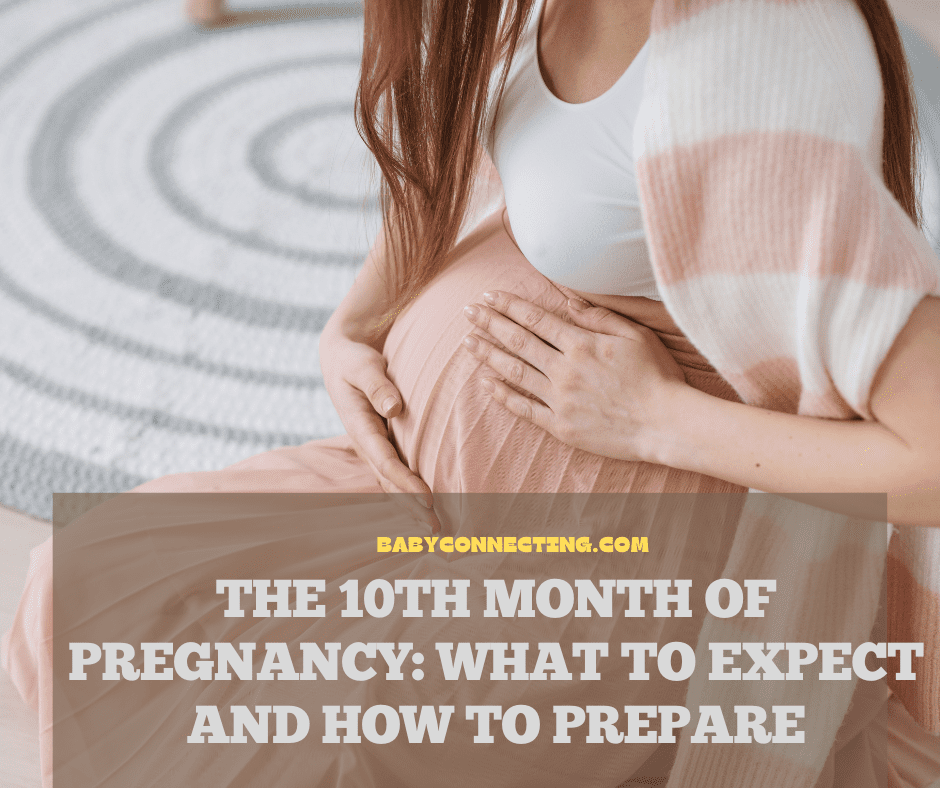Pregnancy Nutrition: Foods to Eat and Avoid for a Healthy Pregnancy
Pregnancy is one of the most exciting and life-changing experiences, but it also requires significant attention to your health and nutrition. As you nourish your growing baby, it’s crucial to understand which foods will benefit both you and your baby, and which foods to avoid to minimize potential risks. Proper nutrition during pregnancy ensures that your baby gets the necessary nutrients for growth and development and that you remain healthy and energized throughout your pregnancy.
This comprehensive guide will cover the essential foods to eat during pregnancy, foods to avoid, and tips to help you maintain a balanced and healthy diet during this special time.
what nutrition is important during pregnancy
1. The Importance of Nutrition During Pregnancy
Proper nutrition during pregnancy is more important than ever, as it affects both the health of the mother and the development of the baby. A well-rounded diet can help ensure a healthy pregnancy, reduce the risk of complications, and contribute to a smooth delivery.
Supporting Baby’s Development
The nutrients you consume help form your baby’s body and brain, ensure proper organ development, and foster healthy growth. Nutrients like folic acid, iron, calcium, and protein are critical during pregnancy to ensure your baby is getting the right building blocks for development. Additionally, nutrients such as omega-3 fatty acids and vitamin D support the development of your baby’s brain and immune system.
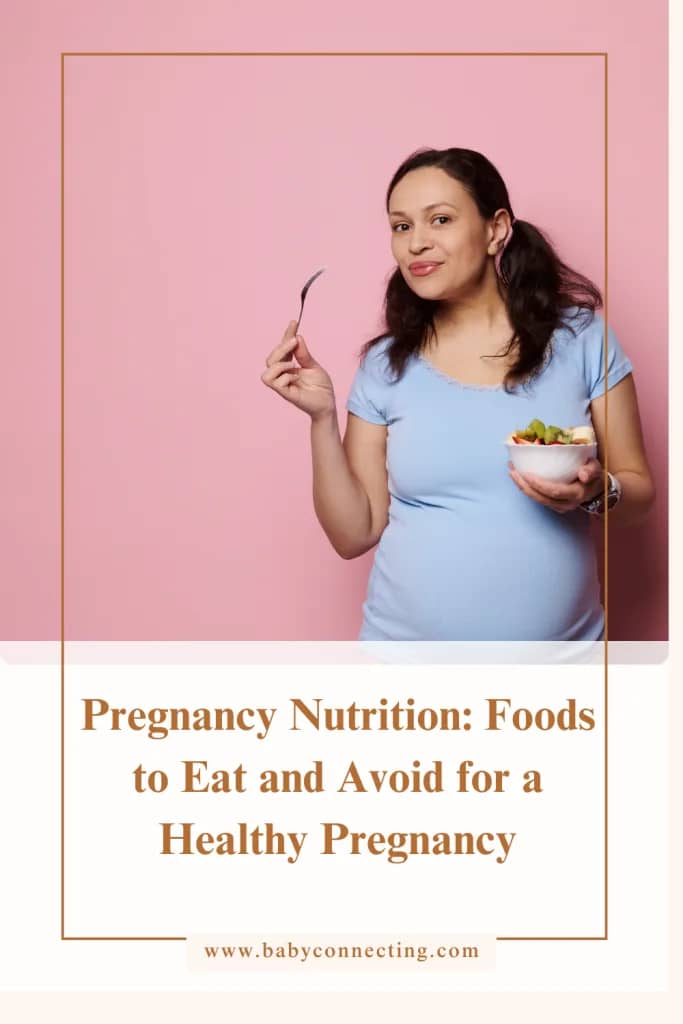
Boosting Your Energy Levels
Pregnancy demands a lot of energy, especially in the first and third trimesters. A healthy, balanced diet will help you feel more energized, avoid fatigue, and reduce the common pregnancy discomforts such as nausea, heartburn, and swelling. By consuming nutrient-dense foods, you can support your energy levels and overall well-being.
Preventing Pregnancy Complications
A balanced diet is vital in preventing pregnancy complications such as gestational diabetes, preeclampsia, and anemia. Adequate nutrition helps maintain stable blood sugar levels, supports healthy blood pressure, and ensures optimal iron levels to prevent anemia. Eating the right foods can also boost your immune system, reducing the likelihood of infections during pregnancy.
2. Essential Nutrients to Focus on During Pregnancy
Pregnancy requires specific nutrients to support both your health and your baby’s development. Here’s a breakdown of the key nutrients you should focus on and the foods that provide them.
Folic Acid (Folate)
Folic acid, or folate in its natural form, is essential in the early stages of pregnancy to help prevent neural tube defects such as spina bifida. It is critical that you begin taking folic acid supplements and consume folate-rich foods as soon as you find out you’re pregnant.
Foods to Eat: Leafy green vegetables (spinach, kale), fortified cereals, beans, lentils, oranges, avocado, and asparagus.
Iron
Iron is a critical nutrient during pregnancy because it supports your increased blood volume and ensures that your baby’s developing cells and tissues get the oxygen they need. Iron also prevents anemia, which is common in pregnant women. Iron-rich foods should be part of your daily diet.
Foods to Eat: Lean meats (chicken, turkey, beef), beans, lentils, spinach, fortified cereals, and tofu.
Tip: Pair iron-rich foods with vitamin C (e.g., citrus fruits, tomatoes) to enhance absorption.
Calcium
Calcium is essential for the development of your baby’s bones and teeth. Adequate calcium intake during pregnancy also supports your own bone health. If you don’t consume enough calcium, your body will draw from your bones to ensure your baby’s bones grow strong.
Foods to Eat: Dairy products like milk, yogurt, and cheese, fortified non-dairy milk (almond, soy, oat), broccoli, and sardines.
Tip: Calcium is best absorbed when spread out over the day, so aim to consume it in multiple meals.
Protein
Protein is vital for the development of your baby’s muscles, organs, and tissues. It also helps maintain your body’s muscle mass and tissue growth during pregnancy. Pregnant women need more protein than non-pregnant women to support their growing baby.
Foods to Eat: Lean meats, eggs, poultry, beans, nuts, seeds, tofu, and quinoa.
Vitamin D
Vitamin D helps the body absorb calcium and plays an essential role in immune function. It is crucial to ensure that both you and your baby get enough vitamin D to support bone health.
Foods to Eat: Fatty fish (salmon, mackerel), fortified dairy products, egg yolks, and fortified cereals.
Tip: Vitamin D is also produced by the body when exposed to sunlight, so be sure to get some natural sunlight exposure every day.
Omega-3 Fatty Acids
Omega-3 fatty acids, particularly DHA (docosahexaenoic acid), are essential for your baby’s brain and eye development. Omega-3s also help reduce inflammation in the body and support overall cardiovascular health.
Foods to Eat: Fatty fish like salmon, sardines, and trout, flaxseeds, chia seeds, walnuts, and omega-3 fortified eggs.
3. Foods to Eat During Pregnancy
Incorporating a variety of nutrient-rich foods into your diet is crucial during pregnancy. Here are some of the best foods to eat for both you and your baby’s health.
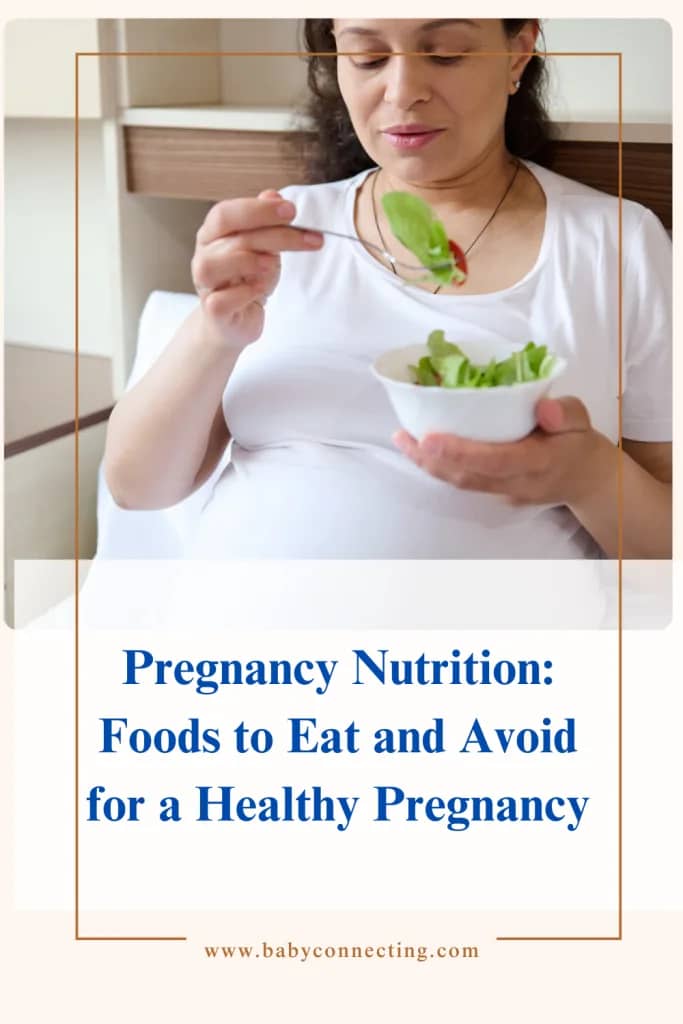
Leafy Greens and Vegetables
Leafy greens such as spinach, kale, and swiss chard are rich in folate, calcium, and iron. These nutrients are vital for both you and your baby’s health.
Best Choices: Spinach, kale, broccoli, Brussels sprouts, and sweet potatoes.
Fruits
Fruits are rich in essential vitamins, antioxidants, and fiber. They are also a natural source of sugars, which provide a quick energy boost.
Best Choices: Citrus fruits like oranges and lemons (rich in vitamin C), bananas (high in potassium), and berries (loaded with antioxidants).
Whole Grains
Whole grains provide fiber, iron, and B vitamins, all of which are important for maintaining energy levels and supporting a healthy pregnancy.
Best Choices: Brown rice, quinoa, oats, whole-wheat bread, and whole-grain pasta.
Lean Proteins
Protein is essential for the growth and development of your baby’s muscles and organs. Lean proteins also support your muscle mass and tissue repair.
Best Choices: Chicken, turkey, tofu, eggs, and beans.
Dairy and Calcium-Rich Foods
Consuming adequate calcium during pregnancy helps form your baby’s bones and teeth and prevents bone loss in the mother.
Best Choices: Milk, cheese, yogurt, and fortified plant-based milk like almond or soy milk.
Healthy Fats
Healthy fats are important for supporting your baby’s brain development and providing you with sustained energy throughout the day.
Best Choices: Avocados, nuts, seeds, olive oil, and fatty fish like salmon.
4. Foods to Avoid During Pregnancy
While many foods are beneficial for both you and your baby, there are some foods that should be avoided during pregnancy due to the risks they pose to your health and the health of your baby.
Unpasteurized Dairy Products
Unpasteurized dairy products can contain harmful bacteria like Listeria, which can cause foodborne illnesses and lead to complications such as miscarriage or premature labor.
Foods to Avoid: Soft cheeses like brie, camembert, and feta, as well as unpasteurized milk and juices.
Raw or Undercooked Seafood, Meat, and Eggs
Raw or undercooked seafood, meat, and eggs can harbor bacteria, parasites, or viruses that may cause foodborne illnesses. These can lead to conditions such as toxoplasmosis, listeriosis, and salmonella, which can be harmful during pregnancy.
Foods to Avoid: Sushi, raw oysters, undercooked beef or poultry, and eggs with runny yolks.
High-Mercury Fish
Certain fish contain high levels of mercury, which can negatively affect your baby’s developing nervous system. It is important to avoid these fish during pregnancy.
Fish to Avoid: Shark, swordfish, king mackerel, and tilefish.
Caffeine
Excessive caffeine intake during pregnancy has been linked to an increased risk of miscarriage, low birth weight, and preterm birth. While it’s okay to have small amounts of caffeine, you should limit it during pregnancy.
Limit Caffeine: Avoid or reduce your consumption of coffee, tea, soda, and energy drinks.
Alcohol
There is no safe level of alcohol consumption during pregnancy. Drinking alcohol can cause fetal alcohol syndrome, which can lead to developmental delays, physical defects, and other lifelong problems.
Avoid Alcohol: Completely eliminate alcohol from your diet during pregnancy.
Processed Meats and Deli Meats
Processed meats, such as hot dogs, deli meats, and sausages, may contain harmful bacteria and preservatives that could pose risks during pregnancy.
Foods to Avoid: Unheated deli meats, hot dogs, and packaged sausages.
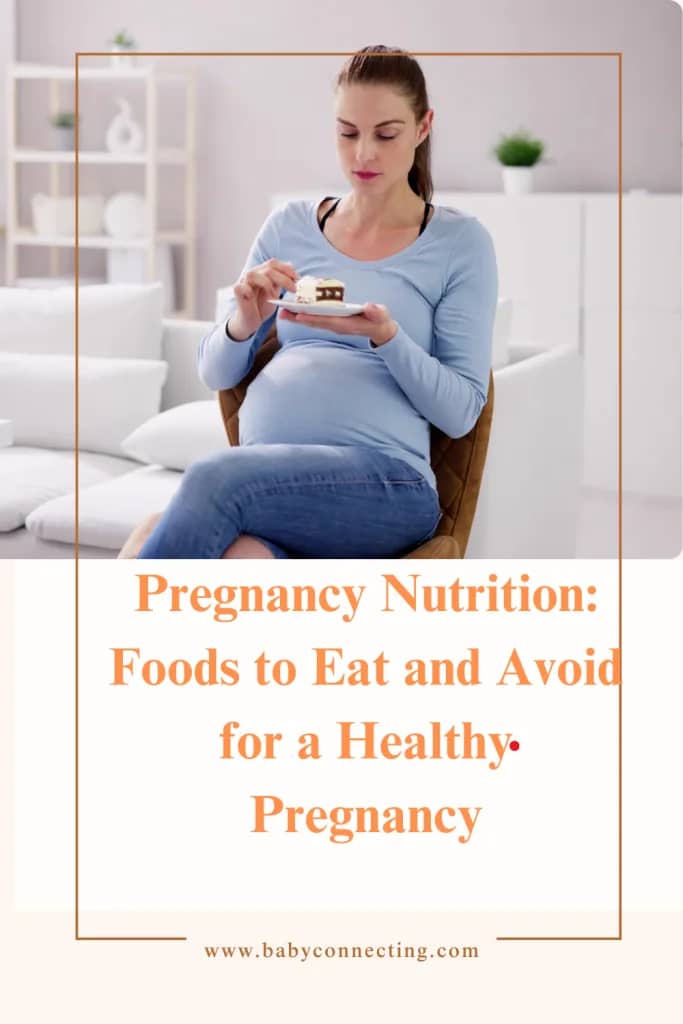
5. Tips for Healthy Eating During Pregnancy
To ensure a healthy pregnancy, it’s not only important to choose the right foods but also to incorporate healthy eating habits into your daily life. Here are some tips to make pregnancy nutrition easier to manage:
Eat Smaller, Frequent Meals
Pregnancy can cause digestive discomfort, such as nausea and heartburn, especially in the first and third trimesters. Eating smaller, more frequent meals can help alleviate these symptoms and keep your energy levels stable throughout the day.
Stay Hydrated
Staying hydrated is crucial for maintaining amniotic fluid levels, preventing dehydration, and supporting your body’s increased blood volume. Aim to drink plenty of water, and consider adding an electrolyte-rich drink if you’re experiencing dehydration.
Plan Balanced Meals
Each meal should contain a balance of protein, healthy fats, and complex carbohydrates to provide the nutrients you need. Try to incorporate a variety of vegetables, fruits, grains, and lean proteins into your meals to ensure you’re getting a wide range of nutrients.
Prenatal Vitamins
While a healthy diet is the best way to get nutrients, taking prenatal vitamins ensures that you’re meeting the increased needs for folic acid, iron, calcium, and other essential nutrients during pregnancy.
Conclusion
Pregnancy nutrition plays a crucial role in the health and well-being of both you and your baby. By consuming nutrient-dense foods and avoiding potentially harmful substances, you can ensure that your pregnancy is as healthy as possible. Focus on a variety of whole foods, listen to your body, and work closely with your healthcare provider to make the best dietary choices for you and your baby. A healthy pregnancy diet not only supports your growing baby but also sets the foundation for your postpartum recovery and long-term health.

